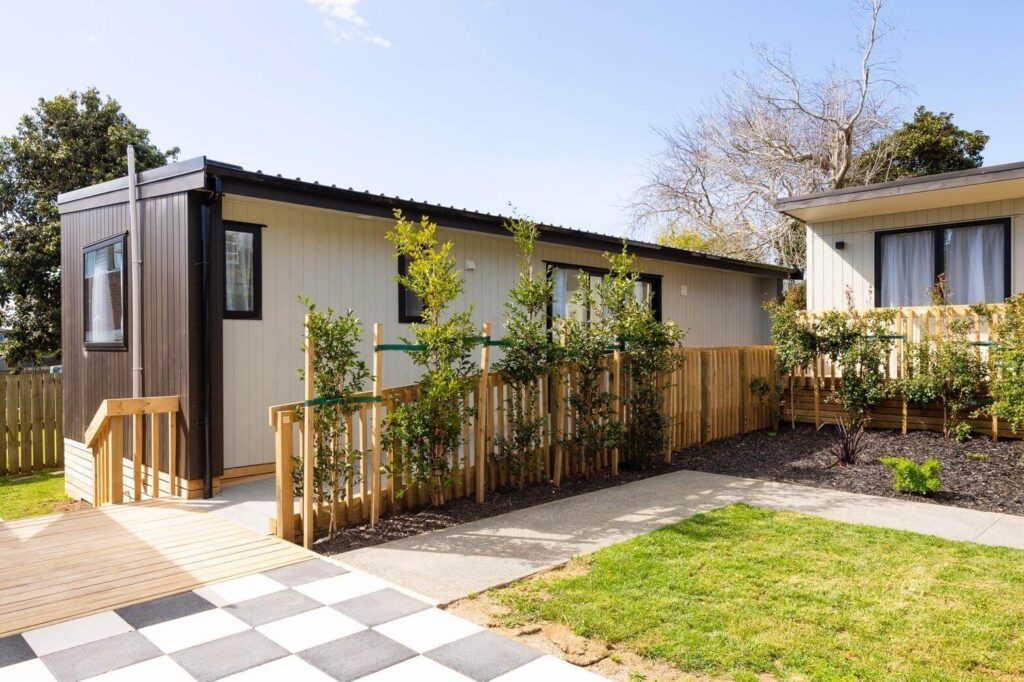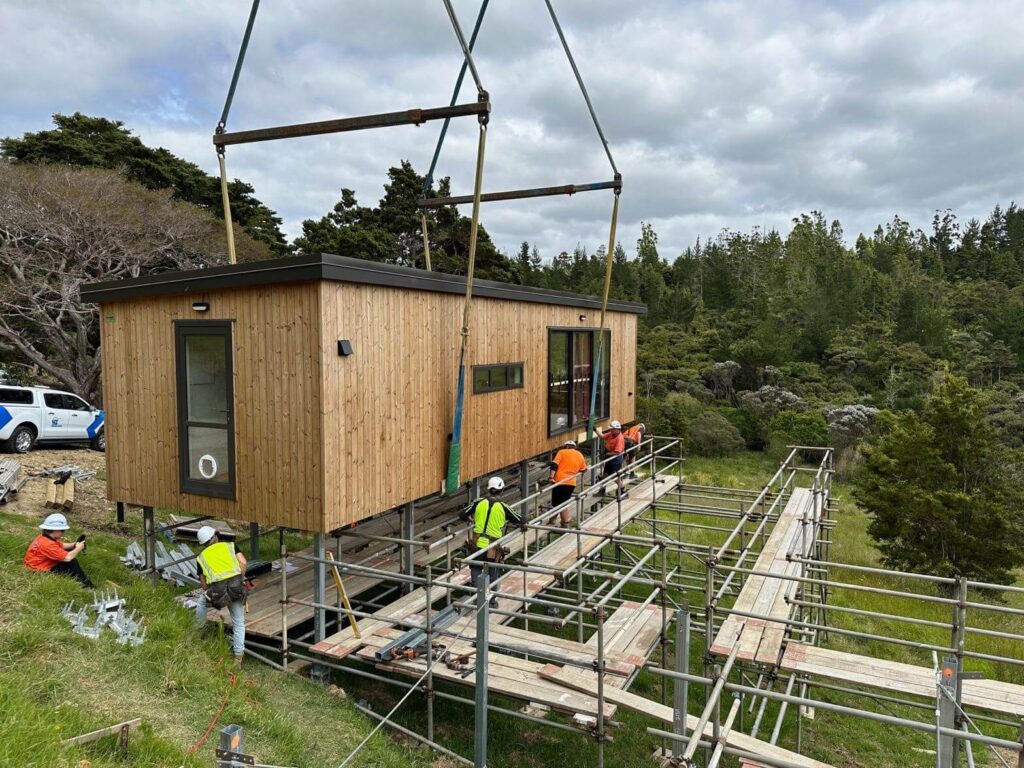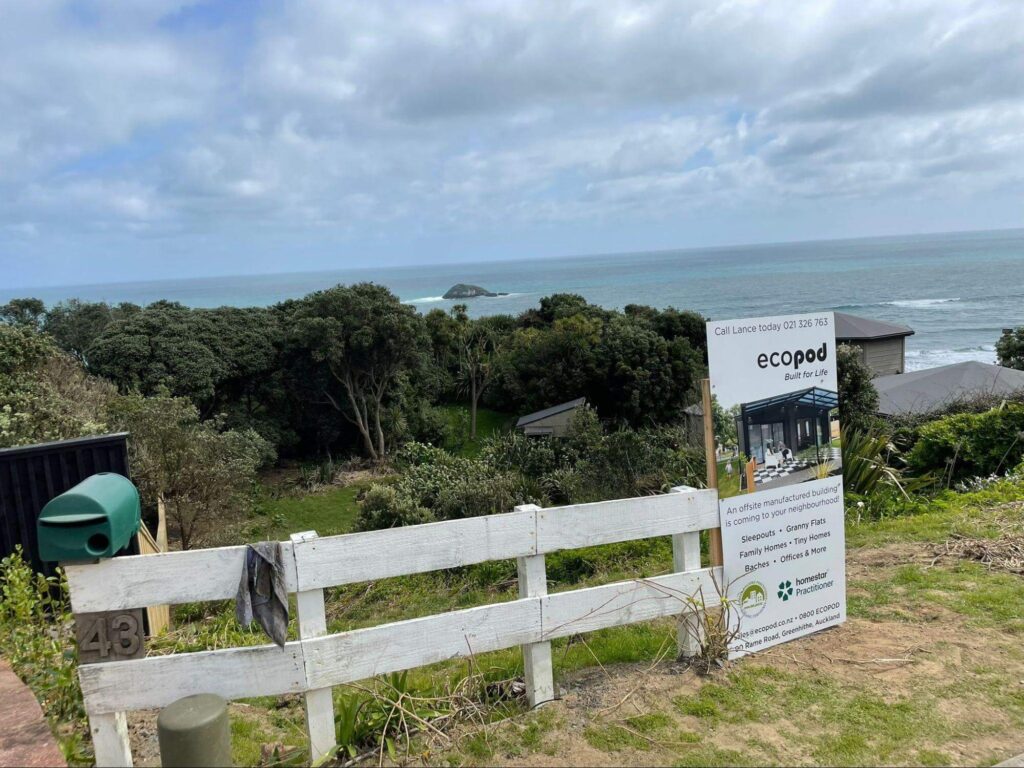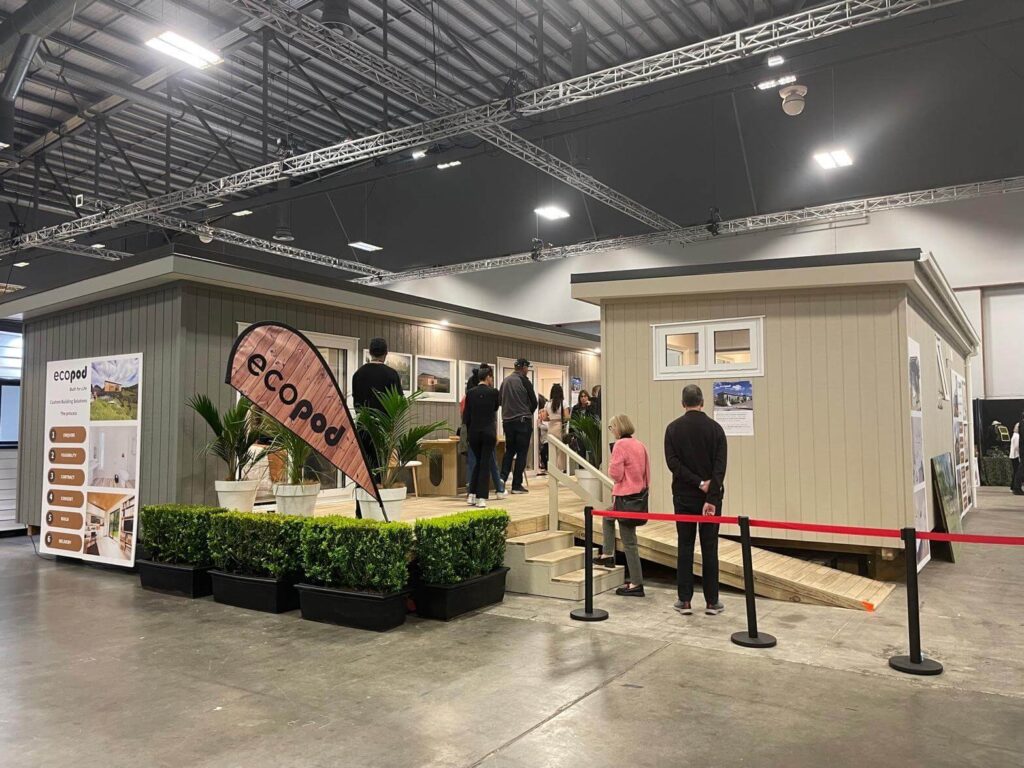Investing in a transportable home offers a flexible and efficient housing solution. However, understanding the true costs involved can sometimes feel overwhelming. Whether you're dreaming of an eco-friendly retreat, a granny flat, or a tiny home for your property, it’s important to know exactly what costs to expect—both the obvious and the hidden ones.

In this article, we'll break down the key cost factors and provide clarity on the financial outlay required for a transportable home. Our aim is to be as transparent as possible throughout the design process and give you a clearer picture of what to expect.
The Fixed Off-Site Building Price of Your Transportable Home
One appealing aspect of purchasing a transportable home from Ecopod Concepts is that the price of the building is usually fixed early on in the process. This price includes the design and construction of the home itself, which remains constant across most sites.
For instance, prices for buildings using our standard designs can be found here for a Very High wind and sea spray zone, excluding appliances. This cost includes the standard features and any extras described in the product pages, and the cost of the ex-factory building consent where required.
Variable Site-Related Costs: What Can Change?
While the cost of the transportable home itself is predictable, there are additional costs that vary depending on site location, logistics, and land conditions. These factors influence the overall investment required for your building project and are important considerations early in the process.

Aside from the cost of delivery, most if not all of the site-related costs would be applicable no matter whether you built onsite or offsite. The site costs are also variable depending on whether you choose to have a full onsite consent for your building or try to avoid consent by keeping your building on wheels. That distinction is a matter for another article, and some further insight can be found in this blog post here.
Despite this, in order to better anticipate and manage the variable onsite costs we’ve established what we call the Ecopod Project Assessment, which works through many of the finer details during the initial feasibility phase to provide a realistic full project price and timeframes. It also helps to inform the design and decision-making around mitigating any potential risks with site-related costs.
Assuming you already own the land (or have landowner approval to build on the property), here are the main variable costs:
1. Transport and Installation Costs
One of the major variable costs is transporting your Ecopod to your chosen site. Transport costs usually range from $2,500 to $14,000 but can be as much as $50,000 depending on:
- The distance from the factory to the site,
- The complexity of the journey (e.g., narrow, windy roads, difficult terrain),
- The equipment required for installation (e.g., cranes for steep or hard-to-reach locations),
- The size and number of buildings (specifically width and weight which impact on gear required to deliver).
In remote areas or locations with challenging access, the logistics can become more complex, which may increase costs. This is covered in our Ecopod Project Assessment which, among other things, identifies potential transportation challenges and provides a clear cost estimate.
2. Foundations, Decks, Steps and Pergolas
Foundation costs can also vary greatly depending on the site. Foundations for a 30-100sqm Ecopod usually cost between $6,000 - $18,000, but this can be exacerbated by:
- Poor soil quality, such as a site subject to liquefaction or peaty soils,
- Steep slopes, requiring taller piles as well as scaffolding and potentially earthworks and retaining,
- Tree roots or bedrock, requiring extra care and machinery to drill or embed piles,
- Tricky site access, requiring handheld tools and machinery, potentially increasing labour costs,
- Or, other complications, that may require bespoke solutions.
For example, a flat, stable site might only require standard pile foundations, while a steep site may need extensive engineering and earthworks to create a safe and solid foundation. These foundation requirements, along with site access restrictions for site work, can significantly affect your overall cost.
Costs of decks, steps and pergolas are another variable cost, since balustrades, site access and scaffolding may need to be taken into account, as well as foundation requirements. Depending on the area, we will also be able to advise on local builders who can do this work for you to keep costs down and provide exactly what you want for your access and outdoor living or entertainment areas.
Through our Preliminary Site Assessment process, we aim to uncover as many potential costs related to the site and identify which foundation systems may be most suitable and cost-effective for the proposed works.
3. Council Contributions and Consents
Another potential cost that may not be immediately apparent is the Development Contributions (DCs) required by local authorities. These are fees paid to the council to help cover infrastructure development in the area, such as roads, parks, and public services.
The amount you’ll need to pay for these contributions can vary depending on the location and services available in the area (e.g., access to public water, schools, or parks). In Auckland, for example, these contributions can be calculated using the Auckland Council’s online portal and if possible is provided as part of our initial project assessment.
Additionally, the cost of obtaining necessary building and resource consents may vary depending on site conditions and complexity. While Ecopod takes care of these legalities and provides realistic cost estimates, the associated fees are ultimately determined by design requirements relating to the site, and the time taken by the local authority to process the application.
4. Power, Water, and Wastewater Connections
Connecting your new transportable home to existing power, water, and wastewater services is another variable cost. If your site is near established utility connections, these fees will likely be minimal, though site constraints and realities will cause variation. In some cases, if the site requires new connections to public services, extra charges from utility companies or authorities will likely be incurred.
In most cases, if you are connecting to an existing dwelling's services, or establishing your own onsite stormwater and wastewater treatment or power generation, these additional fees will be avoided.
Hidden Costs to Watch Out For
When looking to build on your property, many other companies may not declare some of these additional costs, and some people refer to this as a ‘Hidden Cost’. At Ecopod, we do our best to eliminate ‘Hidden Costs’ and identify early on what costs you might expect to incur throughout the building process.

Beyond the previously mentioned costs, some potential further costs that could arise during the construction and installation process include:
- Unknown site conditions, such as finding unexpected materials underground during foundation work.
- Tree trimming or powerline management needed to ensure safe delivery and installation of the home.
- Changes to the Capital Value (CV) of your property once the home is added, which could result in higher local council rates or taxes.
- Driveways, landscaping and furnishing your land and home, are costs that we do not cover in our estimates as they are personal to your site and preferences and aren’t required for Council Compliance.
- Cost of money, if you’re borrowing to fund your build, you’ll want to reduce how long you’re borrowing for in order to reduce the cost of this.
To minimise or eliminate surprises, Ecopod Concepts conducts a Preliminary Site Assessment as part of our Ecopod Project Assessment to identify potential challenges early on. We also provide clients with a comprehensive list of inclusions and exclusions as part of the preliminary planning, ensuring you're aware of any possible risks.
How Ecopod Helps You Manage Transportable Home Costs?
At Ecopod Concepts, our goal is to provide complete transparency about the costs involved in building a transportable home. That’s why we offer a transparent project estimate with fixed costs where possible, and we ensure you have as much information as possible about variable costs during the feasibility phase.

We offer this as part of our Ecopod Project Assessment which costs $250. With that service, you can expect:
- A detailed Preliminary Site Assessment that addresses site-specific challenges and cost implications,
- A customised layout and specification for your dream Ecopod,
- A comprehensive breakdown of all included, excluded, and variable costs,
- Clear communication regarding delivery, consent, and site-related costs,
- Expert guidance to help you navigate the process of building on your property.
By identifying fixed costs, and potential variable costs early on in the journey, our process offers the opportunity to explore the most cost-effective solutions to get your project completed. That way, we can try to avoid potential costs, as well as take the time to find appropriate solutions to any challenges. Importantly, by gathering as much information upfront, we help to reduce the overall cost throughout the design and consenting phase to reduce and eliminate potential questions and delays through the Council. All you then have to do is connect to the landscape, connect to the land with decks and stairs (maybe), furnish, move in, and enjoy!
Conclusion: Be Aware of What You Should Expect to Pay
The final cost of your building project using an Ecopod transportable home will depend on a variety of factors, but with the right planning and preparation, we can help you to predict, minimise and manage them. By breaking down the costs upfront and providing realistic estimates, Ecopod Concepts strives to eliminate surprises and make the process as straightforward as possible.
It’s important to note that no matter who you get to build on your property, many, if not all, of the same site-related costs will apply. The key to doing a successful build is in accurately anticipating and planning for expenses so that they are managed smoothly and quickly in order to reduce cost and stress. One advantage of working with a transportable home builder like Ecopod is that arguably the most complex part, involving the most number of trades and the highest cost, is done in a factory environment so that those costs can be more easily predicted and controlled.
If you're considering a transportable home and want to understand the potential costs specific to your project, get in touch with us for an Ecopod Project Assessment, or click here. We can help you build your dream home with peace of mind by providing realistic estimates of the upfront costs of your transportable home project and identifying opportunities for saving money along the way.
